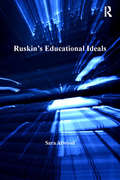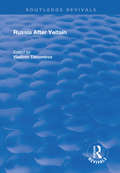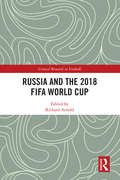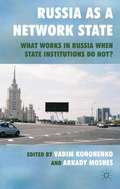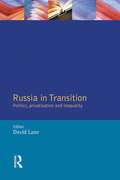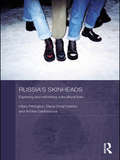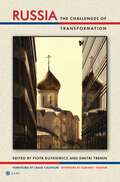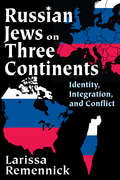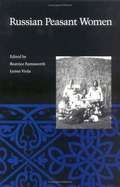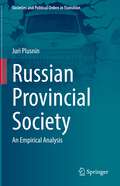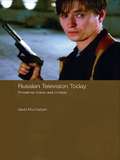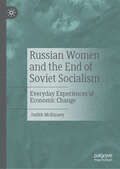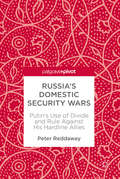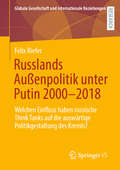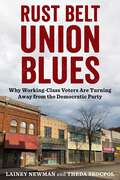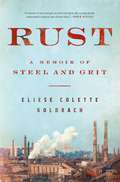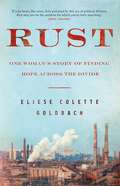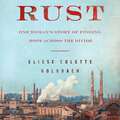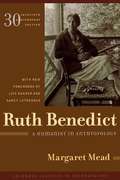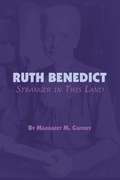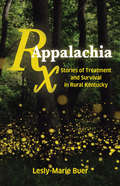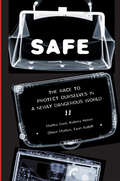- Table View
- List View
Ruskin's Educational Ideals
by Sara AtwoodFocusing on John Ruskin as a teacher and on his greatest educational work, Fors Clavigera, Sara Atwood examines Ruskin's varied roles in education, the development of his teaching philosophy and style, and his vision for educational reform. Atwood maintains that the letters of Fors Clavigera constitute not only a treatise on education but a dynamic educational experiment, serving to set forth Ruskin's ideas about education while simultaneously educating his readers according to those very ideas. Closely examining Ruskin's life and writings, her argument traces the development of his moral aesthetic and increasing involvement in social reform; his methods and approach as an art instructor; and his dissatisfaction with contemporary educational practice. A chapter on Ruskin's legacy takes account of his influence on late Victorian and Edwardian educators, including J. H. Whitehouse and the Bembridge School; the Ruskin colonies in Tennessee, Florida, and Georgia; and the relevance of Ruskin's ideas to ongoing educational debates about teacher pay, state/national testing, retention, and the theory of the competent child. Historically well-grounded and forcefully argued, Atwood's study is not only a valuable contribution to scholarship on Ruskin and the Victorian period but an enjoinder for us to reconsider how Ruskin's educational philosophy might be of benefit today.
Russia After Yeltsin (Routledge Revivals)
by Vladimir TikhomirovThis title was first published in 2001. This study attempts to present a broad picture of political, economic and social developments in Russia at the start of the 21st century. It provides an overview of the legacy of the Yeltsin era and attempts to outline major limitations and policy choices that Putin is facing. The book contains an in-depth analysis of power stuggles in Russia, the background to Vladimir Putin's rise to presidency, the role of oligarchs and other pressure groups in Russia. There is also a focus on economic, social and financial developments in Russia, with an overview of Russian foreign, military and social policies, as well as looking at its level of development when compared with other countries.
Russia and the 2018 FIFA World Cup (Critical Research in Football)
by Richard ArnoldDespite many negative expectations of the 2018 FIFA World Cup, Russia delivered one of the best World Cups in living memory. This book brings together leading scholars working in Russian studies, sociology and political science to analyse the 2018 World Cup and assess its significance for sport, Russia and the world. The book explores the connections between sport, soft power, populism, protest, and international politics, and investigates topics including security, surveillance, social media and patriotic mobilization, shining new light on key contemporary themes in the social sciences. It reflects upon the importance of sporting mega-events for public diplomacy, and considers what the 2018 World Cup can tell us about the current condition of Russian society and the Russian state. This is fascinating reading for anybody with an interest in soccer, sport and society, Russia, international politics, events, or post-Soviet societies.
Russia as a Network State
by Vadim Kononenko Arkady MoshesDiscusses the ambiguous nature of the state in Russia, focusing on elite networks and their role in policy processes. This book examines the paradoxical dualism of state institutions and ruling networks, providing answers as to why some decisions are not implemented, and why the state exists despite the systemic inefficiency of its institutions.
Russia in Transition
by David LaneAn accessible book covering the momentous changes that have occurred, and are still occurring, since the fall of the USSR in 1989. Contributions from an impressive collection of authors are drawn from the most recent and original research available and address political and social issues which impact on all levels of Russian society. The book consists of a selection of specially commissioned pieces which have evolved from the conference of the same name, held at Cambridge University in December 1994.
Russia's Fate Through Russian Eyes: Voices of the New Generation
by Heyward Isham Natan M. ShkylarFrom the book: The young Russian men and women who record in these pages the hopes, fears, triumphs, and tragedies their country has undergone in recent years-altering their own lives profoundly in the process-all come from the first post-Soviet generation to achieve positions of leadership in Russia. They report on five challenges central to Russia's survival and stabilization: reshaping the state, coping with new economic rules, striving toward the rule of law, building a civil society, and preserving the national culture and educational capacity. They love their country, while understanding all too well the crippling psychological legacy of seventy years of a dictatorship that was both cunning and cruel in dispensing a plausible Utopian myth and exacting extraordinary sacrifices in the name of that myth. They understand the acute sense of disorientation that overcame all generations when the USSR abruptly dissolved in 1991 and the Communist Party simultaneously lost much, if not all, of its power. As several of our authors recall, it was like waking up one morning and finding yourself a citizen of an entirely different country, meanwhile discovering that your parents were not your real parents and that you had acquired a brand new surname.
Russia's Skinheads: Exploring and Rethinking Subcultural Lives (Routledge Contemporary Russia and Eastern Europe Series)
by Hilary Pilkington Al'bina Garifzianova Elena Omel'chenkoRussia’s Skinheads: Exploring and Rethinking Subcultural Lives provides a thorough examination of the phenomenon of skinheads, explaining its nature and its significance, and assessing how far Russian skinhead subculture is the ‘lumpen’ end of the extreme nationalist ideological spectrum. There are large numbers of skinheads in Russia, responsible for a significant number of xenophobic attacks, including 97 deaths in 2008 alone, making this book relevant to Russian specialists as well as to sociologists of youth subculture. It provides a practical example of how to investigate youth subculture in depth over an extended period – in this case through empirical research following a specific group over six years – and goes on to argue that Russian skinhead subculture is not a direct import from the West, and that youth cultural practices should not be reduced to expressions of consumer choice. It presents an understanding of the Russian skinhead as a product of individuals’ whole, and evolving, lives, and thereby compels sociologists to rethink how they conceive the nature of subcultures.
Russia: The Challenges of Transformation (Possible Futures #5)
by Piotr DutkiewiczIn Russia, a group of leading Russian intellectuals and social scientists join with top researchers from around the world to examine the social, political, and economic transformation in Russia. This timely and important book of orginal essays makes clear that neither politics nor economics alone holds the key to Russia's future, presenting critical perspectives on challenges facing Russia, both in its domestic policies and in its international relations. It also explores how global order—or disorder—may develop over the coming decades.Contributors include: Oleg Atkov, Timothy J. Colton, Georgi Derluguian, Mikhail K. Gorshkov, Leonid Grigoriev, Nur Kirabaev, Andrew C. Kuchins, Bobo Lo, Roderic Lyne, Vladimir Popov, Alexander Rahr, Richard Sakwa, Guzel Ulumbekova, Vladimir I. Yakunin, Rustem Zhangozha.
Russian Jews on Three Continents: Identity, Integration, and Conflict
by Larissa RemennickIn the early 1990s, more than 1.6 million Jews from the former Soviet Union emigrated to Israel, the United States, Canada, Germany, and other Western countries. Larissa Remennick relates the saga of their encounter with the economic marketplaces, lifestyles, and everyday cultures of their new homelands, drawing on comparative sociological research among Russian-Jewish immigrants.Although citizens of Jewish origin ostensibly left the former Soviet Union to flee persecution and join their co-religionists, Israeli, North American, and German Jews were universally disappointed by the new arrivals' tenuous Jewish identity. In turn, Russian Jews, whose identity had been shaped by seventy years of secular education and assimilation into the Soviet mainstream, hoped to be accepted as ambitious and hard working individuals seeking better lives. These divergent expectations shaped lines of conflict between Russian-speaking Jews and the Jewish communities of the receiving countries.Since her own immigration to Israel from Moscow in 1991, Remennick has been both a participant and an observer of this saga. This is the first attempt to compare resettlement and integration experiences of a single ethnic community (former Soviet Jews) in various global destinations. It also analyzes their emerging transnational lifestyles. Written from an interdisciplinary perspective, this book opens new perspectives for a diverse readership, including sociologists, anthropologists, political scientists, historians, Slavic scholars, and Jewish studies specialists.
Russian Peasant Women
by Beatrice Farnsworth Lynne ViolaAn overview of the forces - economic, social, and ideological - that shaped and transformed Russian peasant society, especially the position of women in it, from the early 19th century to the present.
Russian Provincial Society: An Empirical Analysis (Societies and Political Orders in Transition)
by Juri PlusninThis book presents a unique analysis of modern Russian provincial society. Based on detailed empirical evidence, it develops a theoretical model of Russian provincial society in the late 20th century and the early 21st century. The book explains how under the conditions of catastrophic changes, Russian provincial societies have undergone a structural transformation. It further sheds light on the transformation of the economic behavior of the population and households with regard to economic practices, crafts, and revived archaic forms of labor behavior. Summarizing the extensive empirical evidence, the book puts forward the concept of complementarity of two social structures at the local level: a ground "soft communal" structure and a "tightening with an iron hoop" estate state structure. Next, it discusses the stability and resistance of the local social structure to external political disturbances. Based on the presented analysis, the book introduces several independent criteria on the basis of which it establishes the typology of all empirically observed forms of societies. Subsequently, the book identifies six main types of Russian provincial societies. It explains how depending on the type, the different societies either adapt to political and economic changes in different ways, stay unchanged or transform their structure. The book will appeal to students, scholars, and researchers of economics, political science, sociology, and anthropology, interested in a better understanding of transformation studies, population and household economics, provincial societies, as well as Russian societal structures.
Russian Television Today: Primetime Drama and Comedy (Routledge Contemporary Russia and Eastern Europe Series)
by David MacFadyenExamining the role of dramatized narratives in Russian television, this book stresses the ways in which the Russian government under Putin use primetime television to express a new understanding of what it means to be Russian, answering key questions of national identity for modern Russians in dealing with their recent history: ‘What really happened to us?’ and, accordingly, ‘Why?’ The book covers important issues in Russian television today, including: the reworking of new ‘national’ on-screen heroes its relationship with classic literature the revisionist portrayal of a romantic portrait of life in the Soviet era the role of thematic elements such as love, fidelity, humour and irony the particularly pressing problem of crime and its representation on screen as Mafia or police adventure, and its political usage by the Putin administration. This book provides a detailed account of the critical issues in contemporary Russian television, relating them to broader social and political developments in Russian society.
Russian Women and the End of Soviet Socialism: Everyday Experiences of Economic Change
by Judith McKinneyInitially expected to bring efficiency to the Russian economy and prosperity to Russian society, the shock therapy of price liberalization, privatization and macroeconomic stabilization introduced under Boris Yeltsin was quickly condemned as having worsened the lives of most Russians. Based on conversations with more than two dozen women in a provincial Russian capital, this book takes a retrospective look at these economic policies and explores how they transformed the trajectory of the lives of these women- both positively and negatively- in the family and in the workplace. McKinney considers the everyday experiences of the women as they provided for their families, established businesses, travelled abroad, and adjusted to the new economic, political and social environment of the Late Soviet and Post-Soviet era. Through their divergent experiences, Russian Women and the End of Soviet Socialism casts light on how these women view issues of gender, ethnicity, domestic and international politics, and the end of the Soviet experiment.Students and scholars across a range of disciplines, including gender studies, sociology, economics and history, will find this book of interest.
Russia’s Domestic Security Wars: Putin's Use Of Divide And Rule Against His Hardline Allies
by Peter ReddawayThe book is a case study of Putin’s use of the tactics of divide and rule in relation to, particularly, the hard-line elements among his supporters. It illustrates Putin's methods of staying in power vis-à-vis groups that might put too much pressure on him, or who might even try to oust him. The project also suggests that Putin’s survival tactics have brought Russia to a deeply corrupt, state-dominated form of authoritarianism, which lacks deep institutional roots and will probably lead in due course to some form of state collapse. This work will appeal to a wide audience including political scientists, academics, graduate students, and everyone who is interested in contemporary Russian politics.
Russlands Außenpolitik unter Putin 2000–2018: Welchen Einfluss haben russische Think Tanks auf die auswärtige Politikgestaltung des Kremls? (Globale Gesellschaft und internationale Beziehungen)
by Felix RieferFelix Riefer untersucht in diesem Buch russische Denkfabriken, die am wahrscheinlichsten an der auswärtigen Politikgestaltung des Kremls beteiligt sind. Die einzelnen politisch-analytischen Forschungsinstitute und ihre jeweiligen Akteure werden in Fallstudien entlang der Machtvertikale in einem explorativen, qualitativ-induktiven Ansatz für den Zeitraum 2000–2018 analysiert. Die Bereiche der Außenpolitik sind in Russland Präsidialpolitik und werden entsprechend aus der Präsidialadministration bestimmt. Doch auch im Kreml wird vernommen, dass ohne eine moderne forschungsbasierte Analyse-Infrastruktur in der globalisierten, immer komplexeren Welt sich keine Politik mehr gestalten lässt. Moderne Staaten sind heute auf die Analyse-, Beratung-, aber auch Makler-, Advokaten- und Lobbytätigkeiten der Denkfabriken angewiesen. Welche Ideen werden dort produziert? Und was noch viel wichtiger ist: welchen Einfluss haben sie auf die Gestaltung der Politik des Kremls? Der Autor Felix Riefer ist Politikwissenschaftler und beschäftigt sich insbesondere mit Russland, dem postsowjetischen Raum und russlanddeutschen (Spät-)Aussiedlern. Er promovierte am Lehrstuhl für Internationale Politik und Außenpolitik der Universität zu Köln.
Rust Belt Union Blues: Why Working-Class Voters Are Turning Away from the Democratic Party
by Theda Skocpol Lainey NewmanIn the heyday of American labor, the influence of local unions extended far beyond the workplace. Unions were embedded in tight-knit communities, touching nearly every aspect of the lives of members—mostly men—and their families and neighbors. They conveyed fundamental worldviews, making blue-collar unionists into loyal Democrats who saw the party as on the side of the working man. Today, unions play a much less significant role in American life. In industrial and formerly industrial Rust Belt towns, Republican-leaning groups and outlooks have burgeoned among the kinds of voters who once would have been part of union communities.Lainey Newman and Theda Skocpol provide timely insight into the relationship between the decline of unions and the shift of working-class voters away from Democrats. Drawing on interviews, union newsletters, and ethnographic analysis, they pinpoint the significance of eroding local community ties and identities. Using western Pennsylvania as a case study, Newman and Skocpol argue that union members’ loyalty to Democratic candidates was as much a product of the group identity that unions fostered as it was a response to the Democratic Party’s economic policies. As the social world around organized labor dissipated, conservative institutions like gun clubs, megachurches, and other Republican-leaning groups took its place.Rust Belt Union Blues sheds new light on why so many union members have dramatically changed their party politics. It makes a compelling case that Democrats are unlikely to rebuild credibility in places like western Pennsylvania unless they find new ways to weave themselves into the daily lives of workers and their families.
Rust: A Memoir of Steel and Grit
by Eliese Colette GoldbachELIESE WASN'T SUPPOSED TO BE A STEELWORKER. Raised by staunchly Republican and Catholic parents, Eliese dreamed of escaping Cleveland and achieving greatness in the convent as a nun. Full of promise and burgeoning ideals, she leaves her hometown, but one night her life's course is violently altered. A night that sets her mind reeling and her dreams waning. A cycle of mania and depression sinks in where once there were miracles and prayers, and upon returning home she is diagnosed with mixed-state bipolar disorder. Set on a path she doesn't recognize as her own, Eliese finds herself under the orange flame of Cleveland's notorious steel mill, applying for a job that could be her ticket to regaining stability and salvation. Eliese invites the reader inside the belly of the mill. Steel is the only thing that shines amid the molten iron, towering cranes, and churning mills. Dust settles on everything--on forklifts and hard hats, on men with forgotten hopes and lives cut short by harsh working conditions, on a dismissed blue-collar living and what's left of the American dream. But she discovers solace in the tumultuous world of steel, unearthing a love and a need for her hometown she didn't know existed. This is the story of the humanity Eliese finds in the most unlikely of places and the wisdom that comes from the very things we try to run away from most. A reclamation of roots, Rust is a shining debut memoir of grit and tenacity and the hope that therefore begins to grow. ELIESE COLETTE GOLDBACH was a steelworker at Arcelor-Mittal Cleveland. She received an M.F.A. in nonfiction from the Northeast Ohio Master of Fine Arts program. Her writing has appeared in Ploughshares, Western Humanities Review, Alaska Quarterly Review, McSweeney's Internet Tendency, and The Best American Essays 2017. She received the Ploughshares Emerging Writer's Award and a Walter Rumsey Marvin Grant from the Ohioana Library Association, which is given to a young Ohio writer of promise. She now works at John Carroll University and lives in Cleveland with her husband.
Rust: One woman's story of finding hope across the divide
by Eliese Colette Goldbach''[a] memoir of modern American industrial life, written by the insider who got away - or got away enough to reflect intelligently on where they came from. Think JD Vance's Hillbilly Elegy and even Tara Westover's Educated . . . We could all learn from her example.' New York Times Book ReviewEliese wasn't supposed to be a steelworker. Raised by staunchly Republican and Catholic parents, Eliese dreamed of escaping Cleveland and achieving greatness in the convent as a nun. Full of promise and burgeoning ideals, she leaves her hometown, but one night her life's course is violently altered. A night that sets her mind reeling and her dreams waning. A cycle of mania and depression sinks in where once there were miracles and prayers, and upon returning home she is diagnosed with mixed-state bipolar disorder.Set on a path she doesn't recognize as her own, Eliese finds herself under the orange flame of Cleveland's notorious steel mill, applying for a job that could be her ticket to regaining stability and salvation. In Rust, Eliese invites the reader inside the belly of the mill. Steel is the only thing that shines amid the molten iron, towering cranes, and churning mills. Dust settles on everything - on forklifts and hard hats, on men with forgotten hopes and lives cut short by harsh working conditions, on a dismissed blue-collar living and on what's left of the American dream.But Eliese discovers solace in the tumultuous world of steel, unearthing a love and a need for her hometown she didn't know existed. This is the story of the humanity Eliese finds in the most unlikely of places and the wisdom that comes from the very things we try to run away from most. A reclamation of roots, Rust is a shining debut memoir of grit and tenacity and the hope that therefore begins to grow.
Rust: One woman's story of finding hope across the divide
by Eliese Colette GoldbachELIESE WASN'T SUPPOSED TO BE A STEELWORKER.Raised by staunchly Republican and Catholic parents, Eliese dreamed of escaping Cleveland and achieving greatness in the convent as a nun. Full of promise and burgeoning ideals, she leaves her hometown, but one night her life's course is violently altered. A night that sets her mind reeling and her dreams waning. A cycle of mania and depression sinks in where once there were miracles and prayers, and upon returning home she is diagnosed with mixed-state bipolar disorder.Set on a path she doesn't recognize as her own, Eliese finds herself under the orange flame of Cleveland's notorious steel mill, applying for a job that could be her ticket to regaining stability and salvation. In Rust, Eliese invites the reader inside the belly of the mill. Steel is the only thing that shines amid the molten iron, towering cranes, and churning mills. Dust settles on everything - on forklifts and hard hats, on men with forgotten hopes and lives cut short by harsh working conditions, on a dismissed blue-collar living and on what's left of the American dream.But Eliese discovers solace in the tumultuous world of steel, unearthing a love and a need for her hometown she didn't know existed. This is the story of the humanity Eliese finds in the most unlikely of places and the wisdom that comes from the very things we try to run away from most. A reclamation of roots, Rust is a shining debut memoir of grit and tenacity and the hope that therefore begins to grow.(P)2020 Macmillan Audio
Ruth Benedict: A Humanist in Anthropology
by Margaret MeadMargaret Mead offers a deeply insightful portrait of a woman who overcame the barriers of sexism to become one of the most compelling intellectual figures in twentieth-century American life.
Ruth Benedict: Stranger in This Land
by Margaret M. CaffreyPoet, anthropologist, feminist--Ruth Fulton Benedict was all of these and much more. Born into the last years of the Victorian era, she came of age during the Progressive years and participated in inaugurating the modern era of American life. Ruth Benedict: Stranger in This Land provides an intellectual and cultural history of the first half of the twentieth century through the life of an important and remarkable woman. As a Lyricist poet, Ruth Benedict helped define Modernism. As an anthropologist, she wrote the classic Patterns of Culture and at one point was considered the foremost anthropologist in the United States--the first woman ever to attain such status. She was an intellectual and an artist living in a time when women were not encouraged to be either. In this fascinating study, Margaret Caffrey attempts to place Benedict in the cultural matrix of her time and successfully shows the way in which Benedict was a product of and reacted to the era in which she lived. Caffrey goes far beyond providing simple biographical material in this well-written interdisciplinary study. Based on exhaustive research, including access for the first time to the papers of Margaret Mead, Benedict's student and friend, Caffrey is able to put Benedict's life clearly in perspective. By identifying the family and educational influences that so sharply influenced Benedict's psychological makeup, the author also closely analyzes the currents of thought that were strong when Victorianism paralleled the Modernism that figured in Benedict's life work. The result is a richly detailed study of a gifted woman. This important work will be of interest to students of Modernism, poetry, and women's studies, as well as to anthropologists. Poet, anthropologist, feminist - Ruth Fulton Benedict was all of these and much more. Born into the last years of the Victorian era, she came of age during the Progressive years and participated in inaugurating the modern era of American life. Ruth Benedict: Stranger in This Land provides an intellectual and cultural history of the first half of the twentieth century through the life of an important and remarkable woman. As a Lyricist poet, Ruth Benedict helped define Modernism. As an anthropologist, she wrote the classic Patterns of Culture and at one point was considered the foremost anthropologist in the United States - the first woman ever to attain such status. She was an intellectual and an artist living in a time when women were not encouraged to be either. In this fascinating study, Margaret Caffrey attempts to place Benedict in the cultural matrix of her time and successfully shows the way in which Benedict was a product of and reacted to the era in which she lived. Caffrey goes far beyond providing simple biographical material in this well-written interdisciplinary study. Based on exhaustive research, including access for the first time to the papers of Margaret Mead, Benedict's student and friend, Caffrey is able to put Benedict's life clearly in perspective. By identifying the family and educational influences that so sharply influenced Benedict's psychological makeup, the author also closely analyzes the currents of thought that were strong when Victorianism paralleled the Modernism that figured in Benedict's life work. The result is a richly detailed study of a gifted woman. This important work will be of interest to students of Modernism, poetry, and women's studies, as well as to anthropologists.
Rx Appalachia: Stories of Treatment and Survival in Rural Kentucky
by Lesly-Marie Buer&“Riveting . . . A necessary book for those seeking to understand the opioid crisis and the broader political economy of which it is part.&” —Jessica Wilkerson, author of To Live Here, You Have to Fight Prescription opioids are associated with rising rates of overdose deaths and hepatitis C and HIV infection in the US, including in rural Central Appalachia. Yet, despite extensive media attention, there is a dearth of studies examining rural opioid use. Challenging popular understandings of Appalachia spread by such pundits as JD Vance, Rx Appalachia documents how women, families, and communities cope with generational systems of oppression. Using the narratives of women who use or have used drugs, RX Appalachia explores the gendered inequalities that situate women&’s encounters with substance abuse treatment as well as additional state interventions targeted at them in one of the most impoverished regions in the United States.
Räumliche Ungleichheit-wie ein Föderalstaat sehen: Entwicklung und Folgen einer quantifizierenden Territorialpolitik in Deutschland
by Walter BartlRäumliche Ungleichheiten innerhalb von Staaten haben jüngst an Bedeutung gewonnen, wie die geografische Verteilung von Wahlergebnissen in vielen Ländern zeigt. Das Buch analysiert die Rolle von Indikatoren sowohl für die Messung von räumlichen Disparitäten als auch für die Steuerung kompensatorischer Interventionen des Staates. Indikatoren vermessen Raum typischerweise in einem territorialen Schema, was nicht unbedingt den durch Praktiken konstituierten Räumen entspricht. Der Band untersucht die Territorialpolitik staatlicher Akteure in den Politikfeldern Kommunalfinanzen, Bildungsinfrastruktur, Regionalförderung und Asylverwaltung primär am Beispiel Deutschlands. Er zeigt, dass Indikatoren nur in einigen dieser Politikfelder eine Schlüsselstellung erreicht haben.
SAFE: Science and Technology in the Age of Ter
by Martha Baer Katrina Heron Olivia Morton Evan RathffIf our society is the most technologically sophisticated on Earth, then why can't we protect ourselves from terrorists and other threats to our safety and security? This is the question that frustrates—and scares—all of us today, and the answers have proved maddeningly elusive. Until now. Through dramatic, enlightening, and often entertaining narratives, SAFE makes visible—and understandable—the high-stakes work being done by some of the most ingenious problem-solvers across the country and around the world, people committed to creating real and dependable security in the twenty-first century.The characters in these pages, from scientists and engineers to academics, entrepreneurs, and emergency workers, take us into a fascinating world of inquiry and discovery. Their stories reveal where our greatest vulnerabilities lie and where our best hope deservedly shines through. They show why the systems we rely on to protect ourselves can also be exploited by others to create catastrophe—and what we can do to outsmart the terrorists. We have ample proof that terrorists will go to great lengths to understand how our technologies can be put to destructive use. Now it's time to ask ourselves a question: Are we willing to let them keep beating us at our own game? For the brilliant and colorful innovators in these pages, the answer is no.Among them are Eric Thompson, an expert digital code breaker instrumental in deciphering hidden Al Qaeda messages; Mike Stein, a New York City firefighter turned technologist who is working to overcome the numerous communications failures of 9/11; Eve Hinman, who conducts structural autopsies at the scene of explosions, including the Oklahoma City bombing, in order to develop more blast-resistant designs; Ken Alibek, the infamous architect of the former Soviet bioweapons program and now an American entrepreneur working in the business of defending his adopted country from bioterrorism; Kris Pister and Michael Sailor, university researchers developing sensors no larger than a speck of dust; Rafi Ron, former head of security for Ben Gurion Airport in Tel Aviv and now a leading strategist on U.S. airport security; Tara O'Toole, who stages doomsday bioterror scenarios in order to craft better biodefense systems; and Jeff Jonas, a high-rolling Las Vegas software entrepreneur whose methods for spotting casino cheats might just have uncovered the 9/11 plot.Readers of SAFE will come away understanding the unique challenges posed by technological progress in a networked, and newly dangerous, world. Witnessing the work of this gathering force of innovators up close, they'll be inspired by the power of the human intellect and spirit—and realize how important the contributions of individual citizens and communities can be.
